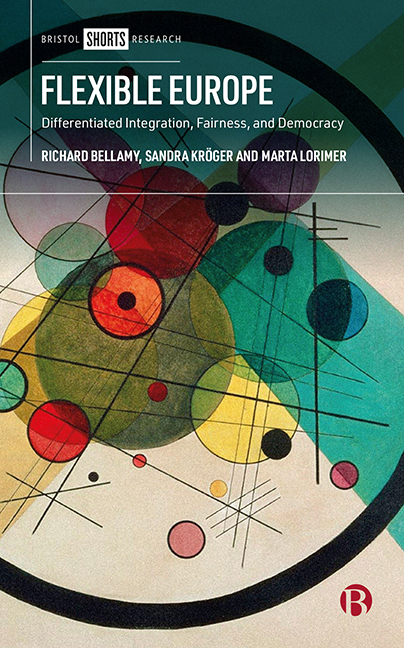Book contents
- Frontmatter
- Contents
- List of Tables
- List of Abbreviations
- About the Authors
- Acknowledgements
- Introduction
- PART I Normative Perspectives on Differentiated Integration
- PART II Political Party Perspectives on Differentiated Integration
- Conclusion
- Appendix A List of Respondents
- Appendix B Interview Questions
- Appendix C Survey Questions
- Notes
- References
- Index
five - Party Views on the Substantive Fairness of Differentiated Integration
Published online by Cambridge University Press: 15 September 2022
- Frontmatter
- Contents
- List of Tables
- List of Abbreviations
- About the Authors
- Acknowledgements
- Introduction
- PART I Normative Perspectives on Differentiated Integration
- PART II Political Party Perspectives on Differentiated Integration
- Conclusion
- Appendix A List of Respondents
- Appendix B Interview Questions
- Appendix C Survey Questions
- Notes
- References
- Index
Summary
This chapter addresses the substantive fairness of DI, that is, its ability to ensure a just distribution of social and economic goods. The substantive fairness of DI has been subject to some disagreement. While some scholars have noted that DI could have unfair redistributive effects by diminishing solidarity (Michailidou and Trenz, 2018) and creating opportunities for free riding (Adler-Nissen, 2016, p 242), others have argued it can also allow the EU to respond to growing socio-economic heterogeneity (Bellamy and Kröger, 2017) and provide opt-outs for those who would be most negatively affected by a policy or unable to comply with its demands.
To understand how political parties perceive of the substantive fairness of DI, we shall analyse their views on whether it is compatible with the principles of impartiality and reciprocity introduced in Chapter 1. We distinguish considerations of fairness that arise from DI that stems from widening the EU from those associated with its deepening. As we noted in the Introduction, the drivers for DI operate differently in each of these contexts, and create divergent incentives for rich and poor, established and new member states. Richer and more established member states are likely to seek exclusions for poorer new members in the context of widening, and exemptions for themselves in the context of deepening. By contrast, new – and especially poorer – member states aremore likely to seek exemptions for themselves and be more ambivalent about exclusions in the context of widening, while being concerned about exemptions for established states in the context of deepening. However, as Frank Schimmelfenig (2014) has shown, rational bargaining by member states in these contexts is constrained by normative concerns. Our findings add to this argument by showing how political actors have different normative perceptions of DI related to whether it stems from widening or deepening, and whether they come from a rich and established member state or a poor and new one.
In this chapter, we shall first discuss when different member states might be expected to consider DI substantively fair in the context of both EU widening and deepening. We then move on to the analysis of political parties’ views on the substantive fairness of DI in both these contexts to see how far they match these expectations. In the conclusion, we summarize the findings.
- Type
- Chapter
- Information
- Flexible EuropeDifferentiated Integration, Fairness, and Democracy, pp. 107 - 121Publisher: Bristol University PressPrint publication year: 2022



